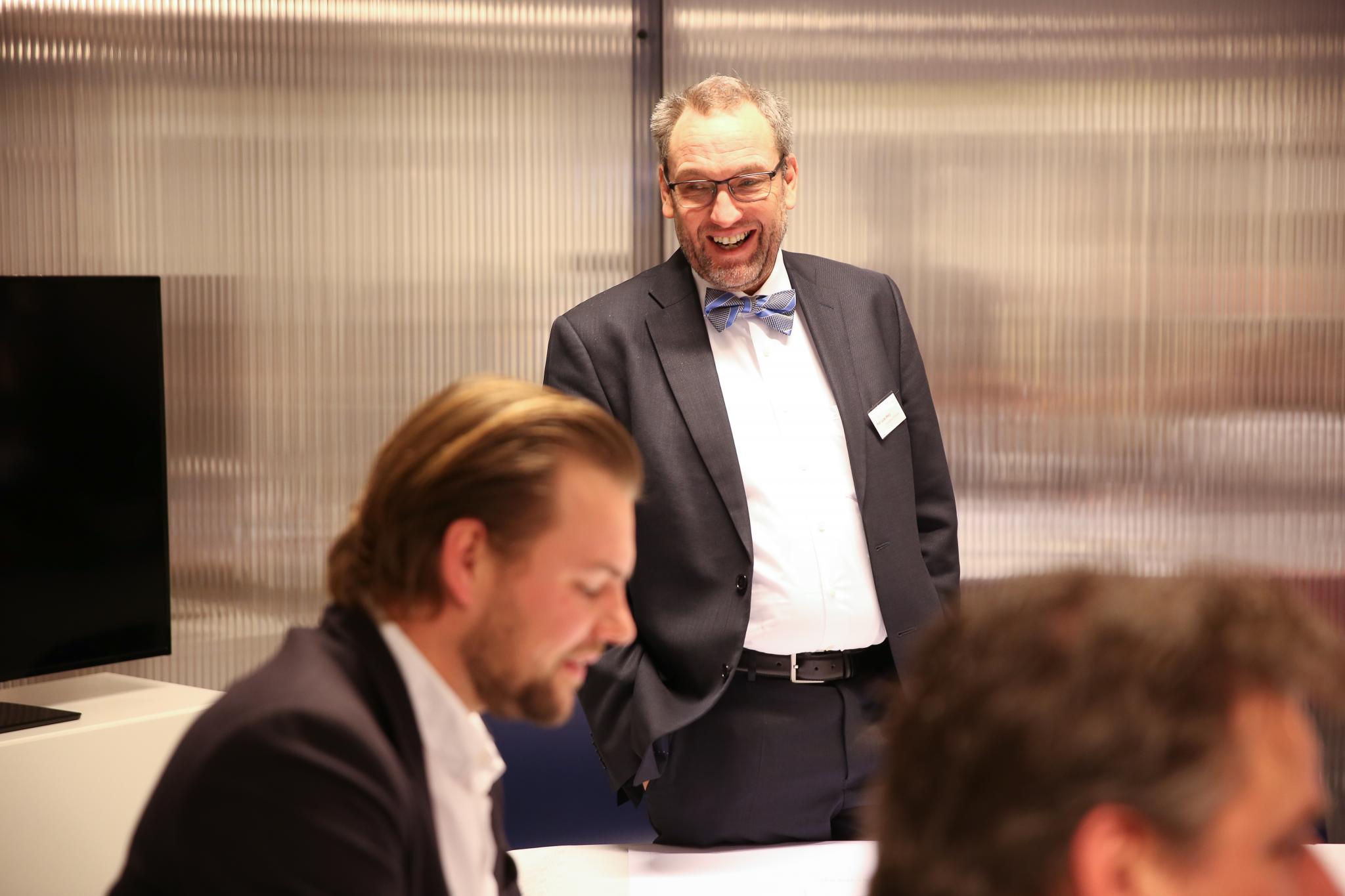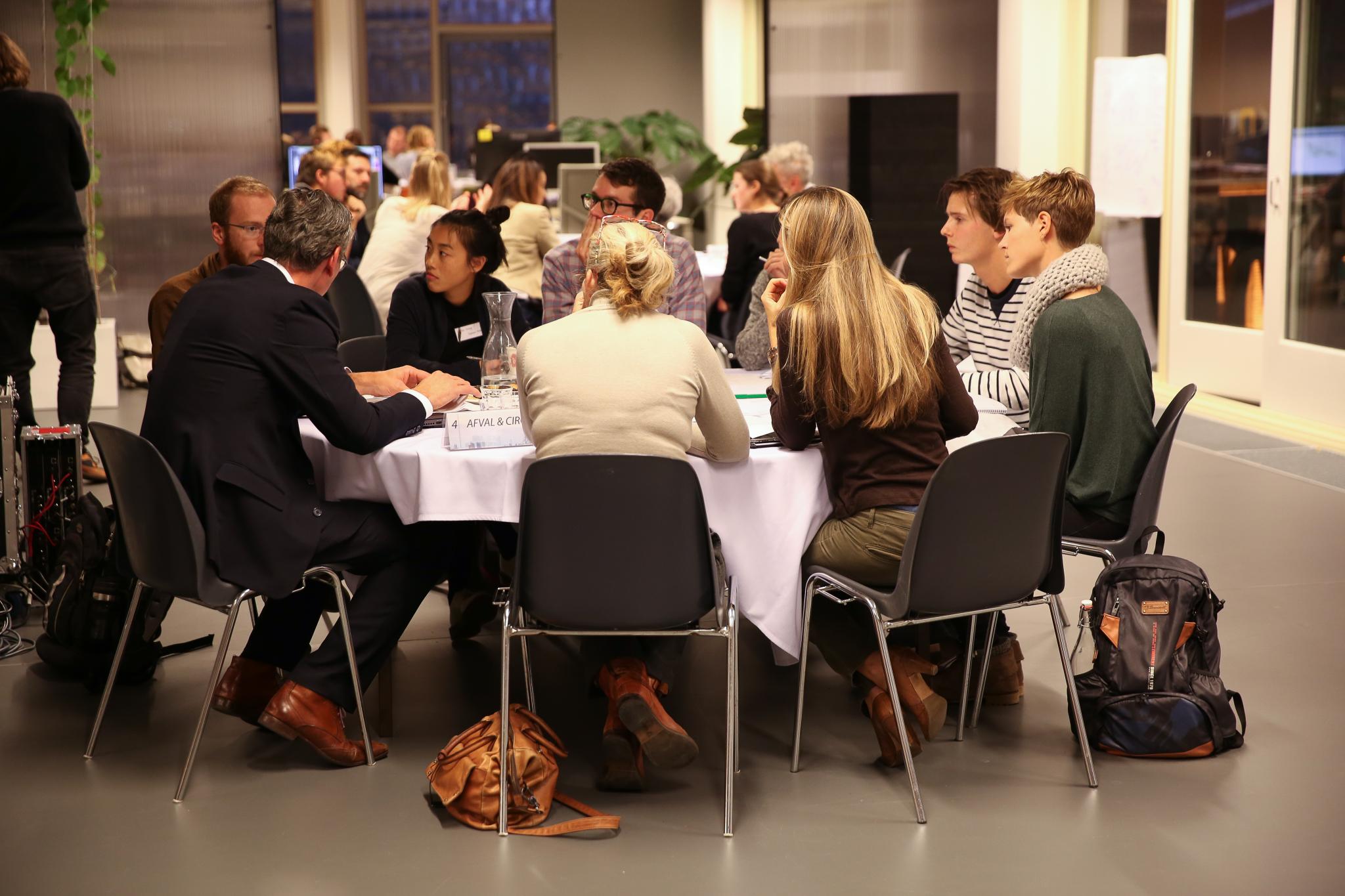Students work to create happier cities
How can we design a happy city? This question was the running theme throughout the presentations and discussions on 30 November at the roundtable event organised by De Gelukkige Stad (The Happy City), a knowledge and innovation hub run by the Leiden-Delft-Erasmus Centre for Sustainability. The main focus of the hub is on contemporary urban problems, such as housing, healthcare, mobility, waste and circularity, and renewable energy. How can we aim to develop a happy (or happier) city based on these themes? Students from TU Delft, Erasmus University Rotterdam and Leiden University collaborated with businesses, government bodies and non-profit organisations on a series of shared challenges and case studies that the students could tackle.
Intrinsic motivation
The afternoon started with two inspiring presentations. Lucas Meijs, Professor of Volunteering, Civil Society and Businesses from the Rotterdam School of Management (RSM) at Erasmus University Rotterdam, spoke about voluntary work and civil society. He stressed,
Voluntary work is of crucial importance to people's happiness in the city. Voluntary work is done with others in an organised way and yet you keep your independence and freedom. You do something you enjoy and consider important and meaningful. But how can we have an influence on this? How can we get the people from the local cookery club to cook for the homeless? How can we arrange for book club members to read aloud in the library? How can we develop something within public space that contributes to happiness in the city?

Prof. Dr. Lucas Meijs, ambassador of and thesis coach within 'De Gelukkige Stad'
The second speaker was Pieter Desmet, Professor of Design for Experience in TU Delft's Faculty of Industrial Design Engineering. Desmet continued,
How can we design for happiness and positive emotions? The ultimate objective is to contribute to people's well-being. The ingredients of well-being are: the sense of being a decent person, the feeling that we matter, pleasure and contentment, and a sense of belonging. But in what ways do people's emotions conflict? And what kind of context is involved? How can we design for well-being?
Based on their different backgrounds, the professors discussed with the audience the possibilities for working on a happy city of the future.
This initial inspiring plenary session was followed by a break. The audience then divided up around nine tables to discuss the different urban themes. At the roundtables, the students were joined by people from businesses, government bodies, charities and foundations. They worked on joint challenges, frameworks and case studies that the students could tackle. The aim was to actually think outside the context and take on board the theory provided by professors Meijs and Desmet in clarifying the challenge.
Each table had its own problem owner, such as the director of the waste processing firm Van Gansewinkel. At his table, he outlined the context, problems and starting position involved in processing domestic waste. How can we improve the systems of waste collection and processing? After a lively discussion, the students came up with several research questions. How can we influence people's behaviour so that they separate their waste? How can we improve business models and develop start-ups that will last longer than a few months?

Round table dialogues
In this knowledge and innovation hub, 24 honours students from Leiden University, TU Delft and Erasmus University Rotterdam are working on a challenge. There are also places in the hub for six Master's students to write their theses and work on the contemporary urban problems. In the hub, the students work on new ideas and approaches that contribute to the collective happiness of city residents. These ideas emerge by bringing together the various methods from the many different disciplines at our universities, including positive design, urbanism, philosophy, sociology, philanthropy, and (industrial) ecology.
Students in this hub work within the three universities on a multidisciplinary challenge, operating in the multifaceted network of the Leiden-Delft-Erasmus Centre for Sustainability. They have access to a large network of professors, PhD candidates, non-profit organisations, government institutions and businesses.
The knowledge and innovation hub of Leiden-Delft-Erasmus Centre for Sustainability is in alliance with the Leiden-Delft-Erasmus honours programme ‘The Happy City’.
